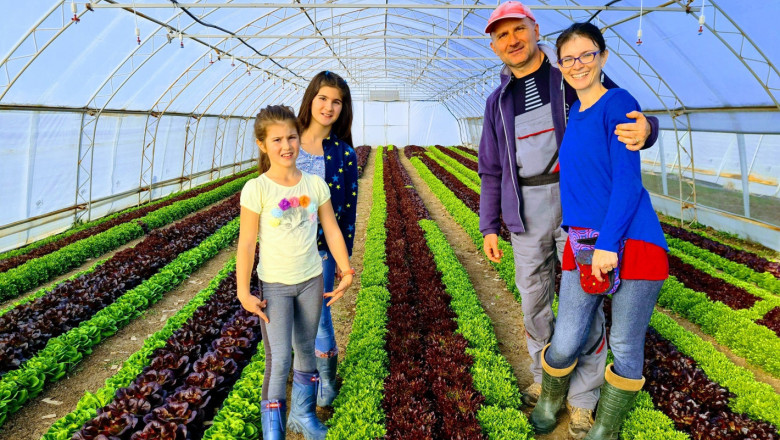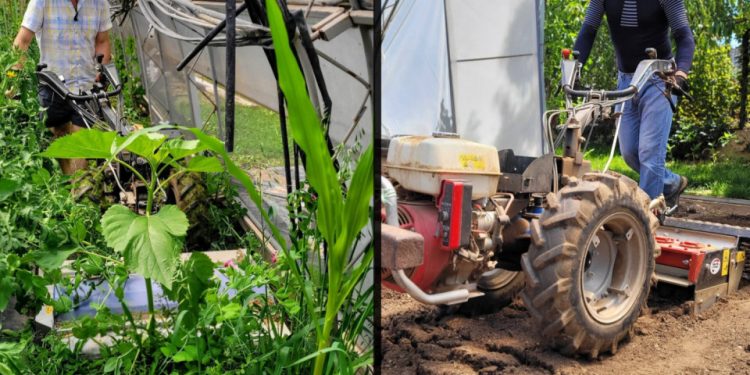#RegenerativeAgriculture #GreenhouseFarming #OrganicVegetables #SustainableFarming #InnovativeAgriculture #CoverCrops #SoilHealth #NaturalPestControl #ChickensInAgriculture #БлизкатаФерма
The “Близката Ферма” (Close Farm) in the heart of Sofia’s rural landscape stands as a beacon of regenerative organic farming. Founded by Ivelin Tonchev and his wife Siana, this small family-run farm has pioneered regenerative agriculture practices for the past four years, covering 7.5 hectares, including 2 hectares of greenhouse space. At a recent conference organized by the Bulgarian Association of Organic Farmers, Tonchev, with over 20 years of agronomic experience, shared insights into their regenerative practices.
The journey began with a soil in dire need of rejuvenation. Tonchev recounts the initial challenges of dealing with compacted soil and a loss of organic matter. To address this, he initially turned to compost, incorporating large quantities obtained from a local waste processing plant. While effective, this approach faced a setback when the compost supply dwindled, leading Tonchev to explore cover crop practices, proving to be a fortuitous alternative.
During the summer, the greenhouses “rest” from main crops, hosting cover crops from May to July. These cover crops, carefully chosen based on seasonal availability and subsequent vegetable cultivation, rapidly accumulate biomass, acting as a natural soil amendment. The integration of these cover crops helps combat soil compaction, providing a thriving environment for microorganisms. Tonchev emphasizes the flexibility this approach offers, allowing targeted treatment of specific areas rather than applying cover crops across the entire greenhouse simultaneously.

In the absence of heavy machinery, Tonchev relies on an old French tool called a “grelinette” to combat soil compaction. Cover crops replace the need for excessive compost, effectively contributing to soil health. Additionally, he occasionally covers the beds with silage film, fostering a microorganism-rich environment that efficiently breaks down the cover crop biomass.
An essential aspect of weed control involves precise timing. Using a gas-powered hoe matching the width of the beds, Tonchev gently disrupts the meristematic tissue of weeds, effectively managing them without resorting to herbicides. This meticulous approach requires careful assessment of the plants’ early growth stages.
Chickens play a pivotal role in “Близката Ферма’s” regenerative practices. A mobile chicken coop is introduced to greenhouses after the harvest, allowing the birds to forage on leftover crops, enriching the soil with their droppings. This practice not only cleans the greenhouse of residual vegetation but also ensures a continuous supply of fresh eggs.
“Близката Ферма” showcases a holistic approach to regenerative agriculture in greenhouse vegetable production. From revitalizing depleted soils to integrating cover crops, precise weed control, and utilizing chickens for natural fertilization, this farm stands as a testament to sustainable and innovative farming practices.












